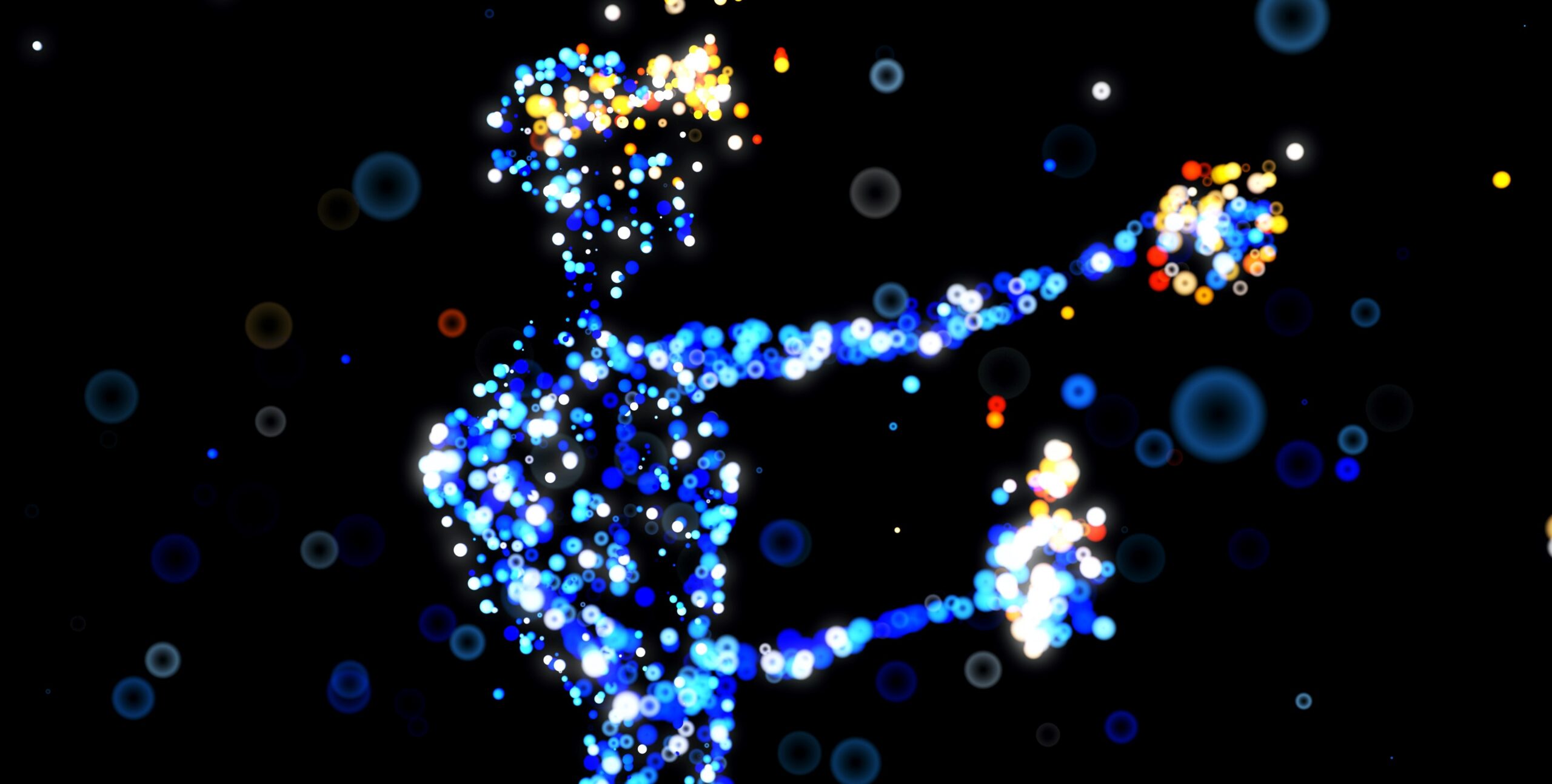
The Myth of Materialism-Part II
In my last article exploding the myth of materialism, I focused on quantum physics and its claims that atoms are not solid entities like billiard balls or BBs, but rather almost completely empty space.
Very Very Brief History of the Atom
This was discovered by Ernest Rutherford in the early 20th century when he fired alpha particles at atoms. To his surprise, the alpha particles went right through the atom as if there was nothing there. On rare occasions, the particles would bounce off something which later turned out to be the nucleus.
But despite that little hiccup, empty space still comprised over 99.9999…. percent of the makeup of the atom.
I wanted to review this history because before Rutherford split the atom, English physicist and chemist, John Dalton (1766-1844) published his Atomic Theory in 1808, contending that the atom was solid and indestructible. But this idea of atom goes back to the ancient Greeks whose word for atom is “atomos” which means indivisible or that which can’t be divided.
So, since everything is made up of atoms, it led modern thinkers and philosophers to conclude the world was composed of matter.
Thus was born our materialistic view of reality.
But as I hinted at the end of my last article, modern philosophers of the 17th and 18th centuries agreed that despite their belief that the universe was made up of matter, we had no direct sense experience of it.
Rene Descartes: No Direct Experience of Matter
Let’s use the father of modern philosophy, the French philosopher, Rene Descartes to explain why we don’t have a direct experience of matter.
Descartes, writing in the first half of the 17th century wanted to know, using reason, if he could come up with any 100 percent absolutely certain truths no rational person could deny.
Previously, the church had laid out all the truths of life, but since the church’s influence was losing steam among many people, Descartes wanted to see if he could replace the church’s discarded truths with rational truths.
I don’t want to go through his proof but Descartes, despite believing in matter as a basis for the physical world, could find no direct empirical evidence to support the material nature of the universe.
How is this possible? you ask. The example I used in my last article of pounding my fist on a table should be proof enough that we have a direct experience with matter, but that didn’t convince Descartes, Why?
Experiencing My Experience of Matter, But Not of Matter Itself
Descartes thought when I pound my fist on the table, I’m not experiencing matter itself, I’m just experiencing my experience of matter.
Let me give you a concrete example of what I mean.
Let’s say, I have a nice red shiny ripe apple sitting in front of me. Its attributes are that its red, round and solid. If I take a bite out it, it tastes sweet and tangy, and if I thump it with my fingers it makes a “thud” sound.
Now suppose I put it on a plate and let it sit there for a couple of weeks to see what happens to it.
Eventually, all those attributes I mentioned above would change.
Now, instead of the apple being red, shiny, solid, and round, it becomes brown, dull, mushy, and collapsed. If I bite into it, it no longer tastes sweet and tangy, but something else. I’m not sure what because I have never bitten into a rotten apple, but it can’t be good. Finally, instead of making a “thud” sound if I thump it with my fingers, it would make a squishy sound.
Descartes would then ask, since all our sense impressions of the apple have changed, is it still the same apple?
If we were to base our answer on our sense impressions, we would have to say no. There is not one sense experience that has not changed over the past couple of weeks.
Yet, most of us, if asked if it is still the same apple would respond, yes.
Why would we believe this if there is no sensory evidence to verify it’s the same apple?
Descartes would agree that it was the same apple. How could it not be? If I know for sure nobody came in and switched it for another apple, then clearly it’s the same apple.
Matter is Not an Experience, but an Innate Idea
This is where Descartes brings up the notion of “innate ideas”. These are ideas, (truths really) that we are born with. It is like being a computer with pre-installed software. These ideas are in us at birth, but we aren’t yet aware of them. It takes a rational inquiry to discover these innate ideas.
Descartes believes our knowledge of matter is one of these innate ideas. He argues that there has to be something underlying the changing attributes of the apple that is consistent and real, in order to make the apple the same apple whether it is ripe and fresh or old and rotten.
So, the upshot for us here, is that we don’t know matter through any kind of a sense experience, but rather, according to Descartes, it is an idea already in our head that we have finally discovered.
Empirical philosophers after Descartes challenged him on the legitimacy of innate ideas.
So, as I said before, we are just experiencing our experience of the apple and not the apple itself. At one time we were experiencing the apple as red, round and solid, and later we were experiencing it as brown, collapsed, and mushy. None of that was experiencing the apple itself; it was just our experiencing different experiences of the apple.
To experience the apple itself would mean we would have to experience something that didn’t change, something that held true as the ripe apple slowly became rotten, but we never had such an unchanging impression of this apple.
Therefore, Matter Is An Illusion
We can then conclude, even excluding the more recent findings of quantum physics, that matter is an illusion, and it has always been an illusion, something we made up to try and give some continuity to our sense impressions.
Therefore, the materiality of the universe is the same kind of mental projection that a belief in God or a higher power is claimed to be by hard-headed materialists.
And, as I said in my last article, there is actually evidence for a higher power through an inner experience of this reality, whereas there is no such experience for the materiality of the world.
So, if a materialist challenges you on your belief in a higher power, saying it is just something you made up; you can respond that the materialism they believe in is also something they just made up.
To learn more: Click this link: The Magical Universe.




